Review for Humanity Has Declined - Complete Season One Collection
Introduction
It’s easy to get jaded with anime, just as it is with any entertainment medium. Too much of any one thing can begin to grate, and once you see yet another variation of a harem comedy, a giant robot show, or a cute girls doing cute things franchise, then it becomes tempting to just draw a line under the whole thing and move on to something new. Given all that, you might wonder just what it is that keeps me coming back for more. It’s because, just like any other medium, once in a while you get an outlier, a work of utter originality, or a new way of looking at a familiar concept, or just something completely wacky and avant-garde. A few years ago, when I was deep in the low cycle of my cynicism/optimism bipolarity, wading through identikit shows on Crunchyroll, I encountered a show called Humanity Has Declined, an anime unlike anything I had seen before, a quirky, comic, and unlikely tale of the end of the world. It made a lasting impression on me, and went straight onto my want list. Of course the problem with quirky, unexpected shows like this one is finding a distributor wanting to take a chance on it. Thankfully, it’s getting a UK release through Animatsu on DVD and Blu-ray.
Humanity really has declined in this series. The human race is on the way out, heading inexorably to extinction. What was once a proud technological species, numbering in the billions, living in vast cities, has been reduced to an agrarian race, living in small isolated villages, still holding onto the glories of the past, and treasuring the few pieces of old technology that remain. It’s this grandiose lingering self-importance that has led to the UN Conciliation Commission appointing a UN Mediator to Camphorwood Village, although when you see that one of her jobs is to slaughter the village chickens while the men are out hunting, because the other women are too squeamish, you realise the level of responsibility of her post. But there is some genuine diplomatic liaising to be done as well, with the new up and coming intelligent species on the block, and most likely replacements for the human race in the grand food chain. The Fairies are small, mysterious, naive creatures that find humanity nifty, and want to play, although they don’t quite understand humans yet, and tend to overdo things.
12 episodes of Humanity Has Declined plus extras are presented across 2 Blu-rays from Animatsu.
Disc 1
1. The Fairies’ Secret Factory
2. The Fairies’ Secret Factory (Part 2)
3. The Fairies’ Subculture
4. The Fairies’ Subculture (Part 2)
5. The Fairies’ Homecoming
6. The Fairies’ Homecoming (Part 2)
7. The Fairies’ Time Management
8. The Fairies’ Time Management (Part 2)
9. The Fairies’ Survival Skills
Disc 2
10. The Fairies’ Earth
11. The Fairies’ Secret Tea Party
12. The Fairies’ Secret Tea Party (Part 2)
Picture
Humanity Has Declined gets the usual 1.78:1 widescreen 1080p transfer. The image is clear and sharp throughout, with no obvious signs of compression, and even the usual bugbear of digital banding masked is by the animation’s shading style. Humanity Has Declined is a bright, pastel shaded animation, to the point of over-exposure, so it doesn’t look fantastic on Blu-ray. I do get the feeling that it’s inherent in the source. Certainly the Crunchyroll streams that I watched looked little different in that respect. The character designs are quirky, but familiar in style, while the animation does enough to tell its story without getting extravagant. The level of detail in this rundown future world is certainly high enough to warrant the HD treatment though, especially when there are multiple fairies on screen, as during the opening credit sequence.
The images in this review have been kindly supplied by Animatsu.
Sound
The sole audio option with this release is DTS-HD MA 2.0 Stereo Japanese, with optional translated subtitles. The dialogue is clear throughout, and while it isn’t exactly an action heavy show the audio does give the show space to breathe. Its characters are suitably well cast, and the music suits the show well, particularly the theme songs. The subtitles are timed accurately, and are free of typos, although you may have to press pause on the occasion of screen text overload, and especially for the translation notes that Sentai have added to explain some references.
Extras
The discs present their content with silent, static menus, and each episode is followed by a translated English credit reel. Disc 1’s pop-up menu may pop up and down during the first two episodes, but on my Panasonic player, it remains frozen, stopping you from selecting any other episode.
The extras on disc 2 offer more than the usual minimum for anime releases. You get the textless credits of course, and you get further trailers for Girls und Panzer, The Pet Girls of Sakurasou, Little Busters!, Say “I Love Your”, BTOOOM”, and So I Can’t Play H.
Story Digests last 6:12, and offer bite sized précis’ of the episodes.
More fun are the Survival of the Fittest Shorts, 6 of them, in total running to 15:51, and offering another adventure among the Fairies for Mediator.
Conclusion
I’m beginning to have some qualms about Humanity Has Declined, or if it’s possible to type, just the one qualm, about its re-watchability. Don’t get me wrong, it’s still a fantastic show, original, entertaining, and unlike any other anime I have seen, a humorous vision of a post apocalyptic Earth. It’s just that this is the second time I’ve watched it, and it came across as a very good, well put together, wry comedy, instead of the game-changing must watch anime I thought it was when I first streamed it. It could be that Humanity Has Declined doesn’t have the staying power that you might expect from your instant anime classics. Then again, it could be down to the Time Management two-parter, which is one of those time-loop episodes, and if Groundhog Day, and Star Trek TNG’s Cause and Effect have taught me, it’s that time-loop stories are inherently prone to becoming tedious the second time around. After all, you’re not watching them for the second time; you’re watching the loop again and again, for the 10th to 20th times.
A post-apocalyptic comedy may sound like an oxymoron, but not every post-apocalyptic vision of the future has to be Mad Max. Instead Humanity Has Declined presents a human society that is quietly, meekly on the way out. It’s reached its technological and sociological pinnacles, and is now downsizing, the population shrinking, the society becoming smaller scale and agrarian again. The sense is that people are generally happy with that outcome, that humanity has ticked all the checkboxes and has nothing left to accomplish. Of course past glories are hard to let go of, hence the United Nations Conciliation Commission appointing the protagonist as a UN Mediator, but in the context of the show, it means generally being a busybody in the village, and hanging out with the Fairies, less mediation, and more suffering their extravagances and mistakes.
Nature abhors a vacuum, and where humanity may be on the decline, there is an up and coming intelligent species, the diminutive Fairies, hard-working, industrious, prolific, and eager, and they find their forebears, the humans to be neat, and love interacting with them, or at least interacting with the Mediator. Of course being new to all this intelligence thing, they tend to over-think things, and get things wrong, which causes no end of consternation for the Mediator.
This is the core of Humanity Has Declined’s comedy, as it’s a delicious satire on the human condition, more subtly accomplished than something like Sayonara Zetsubou Sensei, and always ensuring that the humour is at the heart of the story. It’s the Fairies that stand in for our thriving, bustling consumerist humanity, with the declining humans, and particularly the Mediator acting as wry observers, amused older siblings to this up and coming intelligent race. The two part stories tend to comment on our societal idiosyncrasies in some form, with the Fairies’ excesses exaggerating our own behaviour.
The first two-part story looks at consumerism, when the human village faces a food shortage, and the Fairies decide to fill the gap by building a canned food factory. Of course humans can’t be denied their silliness either, especially when Mediator’s friend Y shows up in the next story, seeking out archaeological treasures for a Human Monument project, but instead finding a working printer, and optical discs full of boys-love comics. It’s already out of hand once the manga craze starts up again, and it’s daft seeing an agrarian society hosting a Comiket market, but then the Fairies start publishing their own comics.
The show also dabbles in some science fiction realms as well, with the third story looking at a reason why humanity may be on the way out, when the Humanity Monument Project decides to investigate a ruined city, presumably the peak of human civilisation. This coincides with the return of a constant electricity source to the village, and the arrival of a couple of strange characters, vey obviously robots. There’s a whole lot of Star Trek The Motion Picture in The Fairies Homecoming, but it’s done in a clever and delightful way. The Fairies’ Time Management on the other hand is for me the most tedious of the stories in this collection. The Fairies love sweets, and in this declining world, The Mediator is one of the few people that can still make them. Alas for the Fairies she rarely has time, and even less so when her grandfather wants her to meet the Assistant. So the Fairies come up with their own, timey-wimey solution, and it’s all in service to the most painful punchline I have yet encountered in anime.
The peak of the satire comes in the single episode, The Fairies’ Survival Skills, in which the Fairies get to play out human civilisation in its entirety in a twenty minute episode. A handful of Fairies and the Mediator wind up stranded on an island, and the resourceful Fairies decide that the Mediator will be their Queen, and they will serve her in all things. And so a lightning fast civilisation rises on the island, all for the Queen, and quickly goes the way of Easter Island, albeit with added industrialisation and GM run rampant.
What makes Humanity Has Declined even more interesting is that it doesn’t proceed chronologically. Like the original broadcast order of Haruhi Suzumiya, this show unfolds in a way that you get the information you need to most appreciate the show, in the order that it makes most sense. That means that the satire heavy shows that concentrate more on the Fairies are up front, and it’s only later in the series run that we learn more about the human characters, such as Mediator, Y, Assistant, and Grandpa. So it’s episode 10 where we see Mediator’s first day on the job, and her initial mishandling of the Fairies, and it’s the final two-parter where we learn most about her, her days at school, the other students, and why she became intrigued about the Fairies in the first place.
On my second time around, Humanity Has Declined doesn’t have the ‘best-thing-ever’ feel to it that I initially thought, although it is still remarkably well done, and still feels fresh and original. The biggest issue I have is the time-loop story, which really slows the pace down for me, but I also find that with Mediator one of those comedy characters common in anime, who use their inner voices to sarcastically comment on what they observe, it’s not a show I care to marathon in short order, as that character quirk can get a little tiresome. But it is a singular anime comedy, one that stimulates the intellect more than the chuckle muscle. You’ll be smiling wryly a lot during this show. It may have an original concept to it, but if you’re looking for a point of comparison, I’d say that Humanity Has Declined has the same sort of surreal tone that Arakawa Under the Bridge has. It’s very much worth watching.
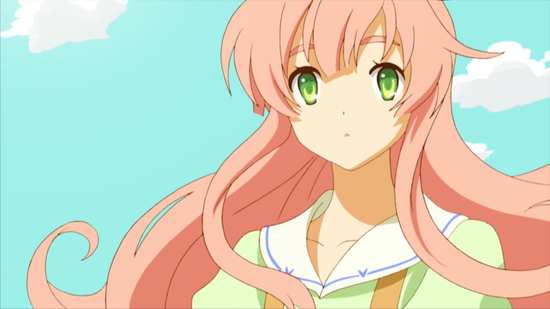
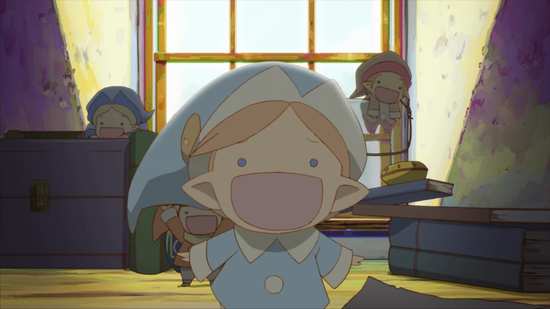
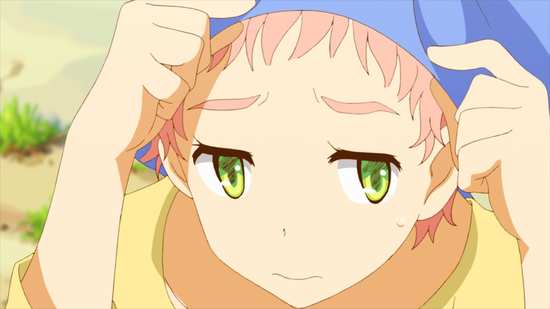
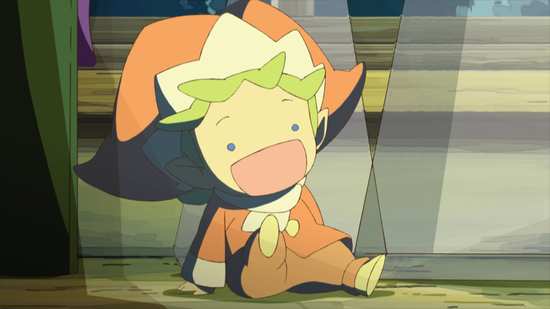
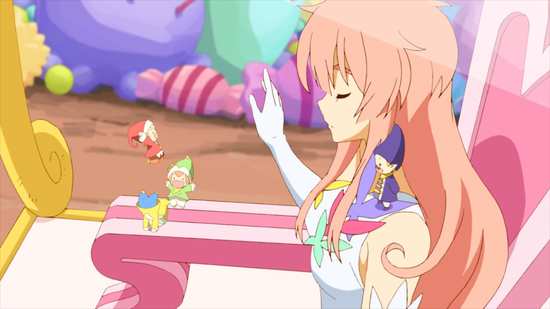
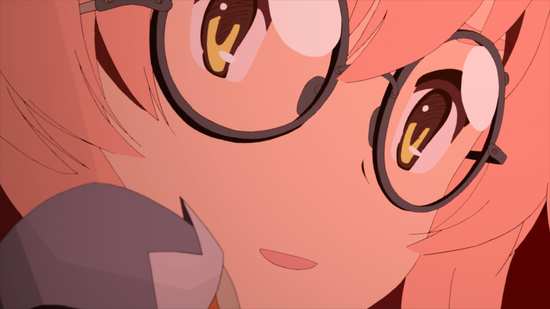
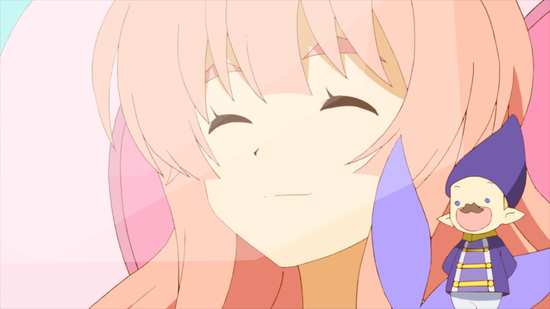
Your Opinions and Comments
Be the first to post a comment!